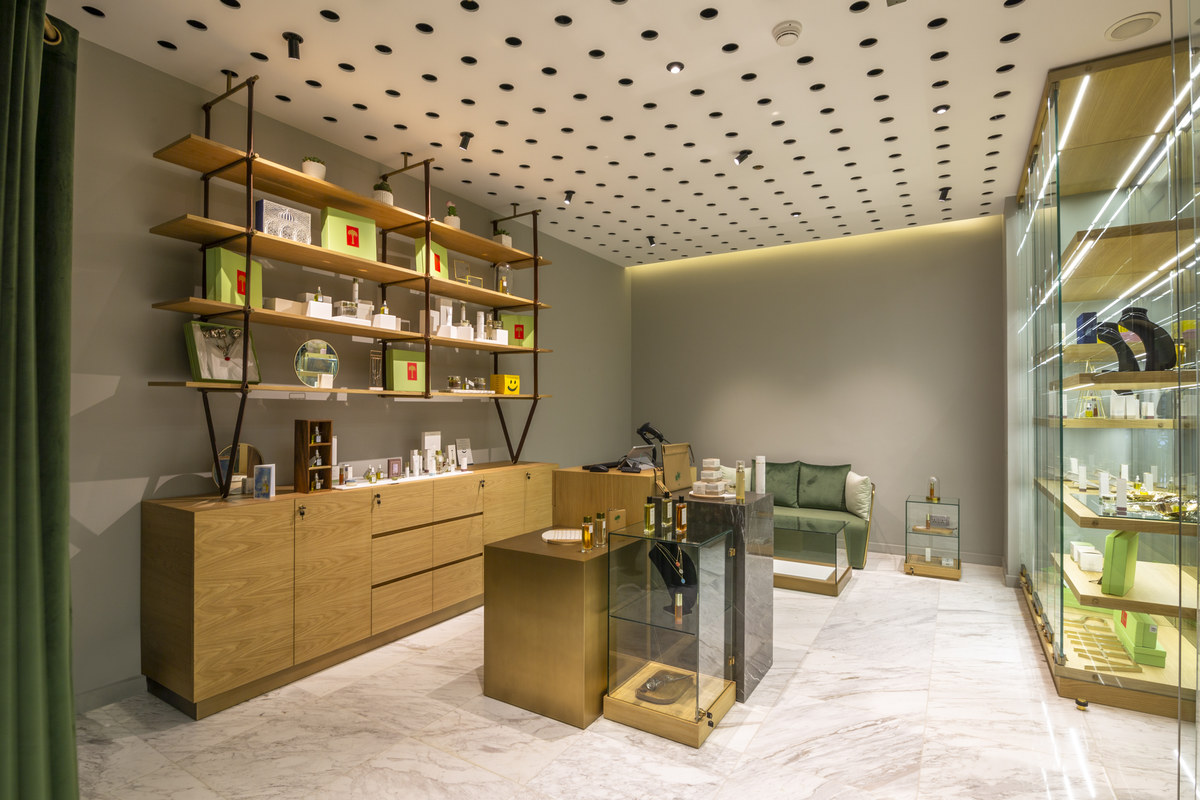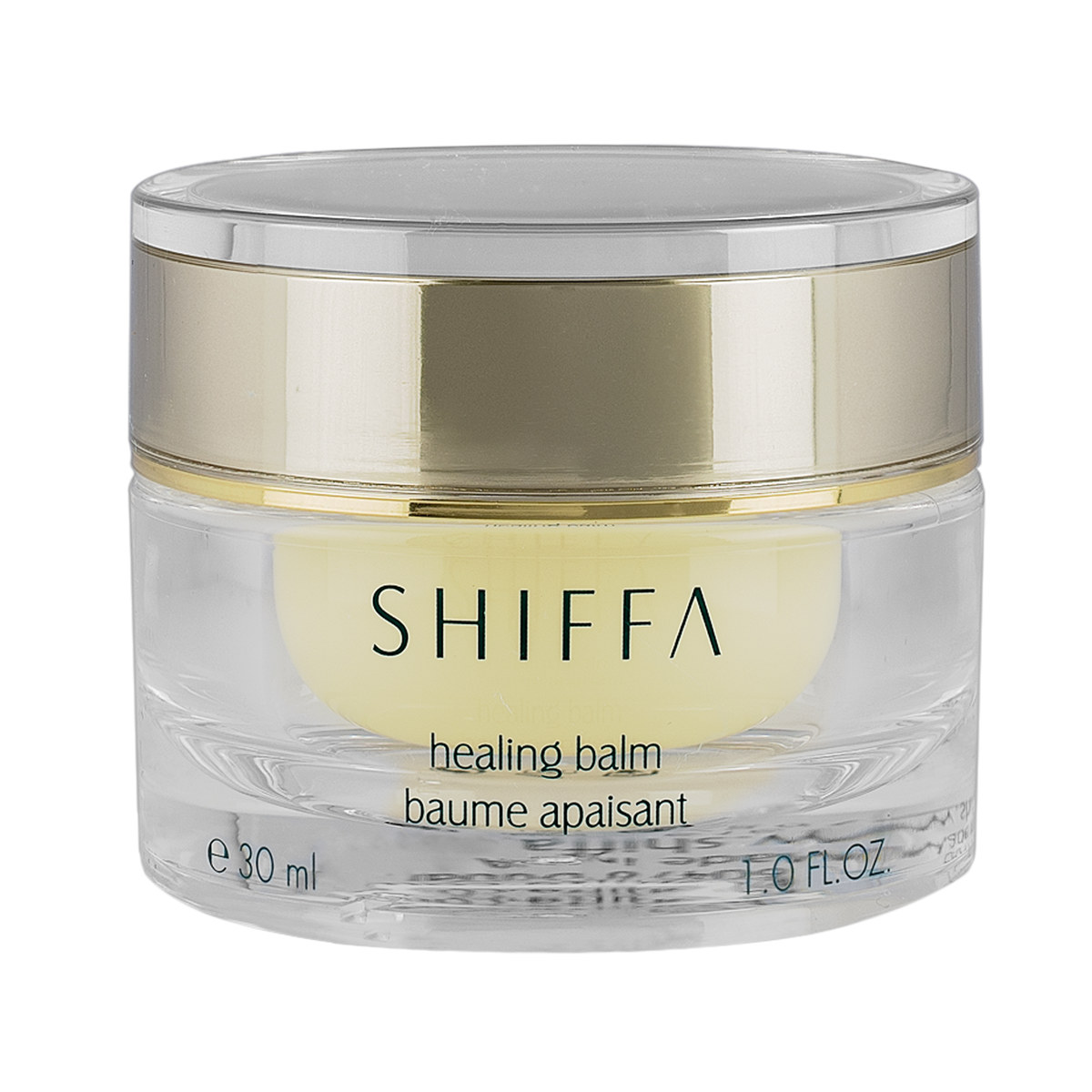DUBAI: As more and more consumers seek beauty products based on natural ingredients, Emirati brand Shiffa Beauty, founded by Dr. Lamees Hamdan, has been growing in popularity around the region.
It’s a journey that started almost 20 years ago, when Hamdan was pregnant with her first child. “The pregnancy was my lightbulb moment,” she told Arab News. “That is when I started caring about what we are consuming and putting on our skins — how that could affect my unborn baby and how it affects my body. So I decided to take my knowledge of medicine and dermatology and create safer, natural, organic products for the skin that were as effective as — or even better than — their chemical counterparts.”

Her boutique at Dubai’s Waldorf Astoria, Shiffa Curated, opened last year. (Supplied)
Her first product — a healing balm designed to help pregnant women with stretchmarks, which has received an endorsement from Kim Kardashian West — remains her bestseller. It’s billed as helpful for a variety of skin conditions including eczema, psoriasis and rosacea.
Shiffa (which means ‘healing’ in Arabic) is inspired by Arabic traditions and even ancient ayurvedic practices. The use of hibiscus, jasmine, frankincense and honey (in the Aromatic Facial Cleanser and Rose Bliss balm) are all part of long-established Arabic herbal rituals. Right now, Hamdan is studying integrative medicine. “I believe that herbals, when properly understood and prescribed, can give amazing results for various diseases with fewer side effects than conventional therapies,” she said. “I think — 10 years from now — all doctors will be schooled in herbs and lifestyle changes as a first-line treatment for disorders.”

Her first product was a healing balm designed to help pregnant women with stretchmarks. (Supplied)
Hamdan recently launched “Amuse” — a natural filler with a two-way patch of micro-dissolvable needles. It is a multipurpose treatment for wrinkles that Hamdan claims increases elasticity and lifts the smile-line area.
It might come as something as a surprise that a woman who pushes “all-natural” traeatments isn’t against injectables. But, Hamdan explained, “Some people don’t like fillers, and that’s OK, others do like getting a little help and that’s OK too. What’s not OK is getting too much done, where you end up looking abnormal. Too many people have gone down this route. I see bad lip jobs, for example — stay with your smaller lips, is my advice. Sorry, but someone has to call out these bad procedures. It’s my job to make sure my customers look better and younger.”

Her boutique at Dubai’s Waldorf Astoria, Shiffa Curated, stocks a wide range of products Hamdan has discovered on her travels. (Supplied)
The first overseas market for Shiffa was Japan — a country known for being ahead of curve. “You need to really understand the foreign market you want to launch in, and whether there are enough people interested in what you have to offer. Everyone thinks the US or UK are the next steps, but for Shiffa, it was Japan,” Hamdan said. After a successful stint in Japan, Hamdan looked to America next, and Shiffa has been featured by the likes of Vogue and W Magazine. “I believe people in the States were looking for a natural brand that had a scientist (or doctor) behind it,” she said. Hamdan launched her supplements line, DLMD, in America last year and said she will bring it to this region shortly.
She’s been busy in the region too: Her boutique at Dubai’s Waldorf Astoria, Shiffa Curated, opened last year, and stocks a wide range of products Hamdan has discovered on her travels (and, of course, all the Shiffa beauty products). “The boutique is a flagship for the Shiffa brand. And I wanted it to have not only my skincare products, but everything else that I love from here and different parts of the world,” she said.

























